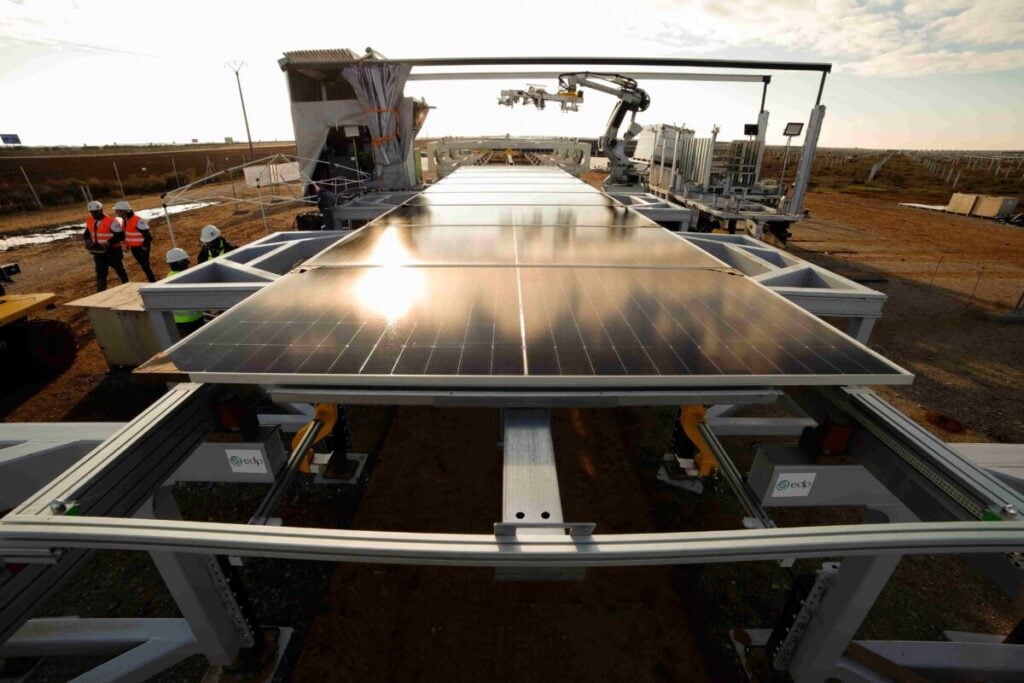
Developer EDP is piloting a robotic construction solution on a 122MW PV power plant in Valladolid, Spain, through which it hopes to significantly cut the project’s build time.
The Hyperflex technology, developed by Italian robotics specialist Comau, will be used on a 3MW section of Peñaflor project, with the aim of cutting the time needed for the structure assembly phase of the project in half.
Try Premium for just $1
- Full premium access for the first month at only $1
- Converts to an annual rate after 30 days unless cancelled
- Cancel anytime during the trial period
Premium Benefits
- Expert industry analysis and interviews
- Digital access to PV Tech Power journal
- Exclusive event discounts
Or get the full Premium subscription right away
Or continue reading this article for free
Automated on-site production technologies are emerging as a new area of innovation in PV power plant construction. As well as streamlining certain aspects of the build process, mobile assembly stations are also seen as means of addressing labour shortages and improving site safety for workers by taking on some of the more physically demanding construction tasks.
In the case of the Peñaflor project, a mobile factory will pre-assemble the structure of the PV system and a rover will transport the pre-assembled structure to its final location for installation.
“By investing in a solution as innovative as this, we contribute to making the construction of solar parks faster, more efficient, safer and more sustainable,” said António Coutinho, CEO of EDP Innovation.
“The pilot in Peñaflor is just the first step in introducing automation solutions into EDP’s robust solar business plan. EDP’s goal is to transform this into a global and integrated process, capable of generating competitive advantages for all the company’s operations and enhancing our human capital for more qualified activities”, said Coutinho.
Pietro Gorlier, CEO of Comau, added: “The collaboration with EDP confirms the importance and added value of automation in renewable energies and particularly, in this case, solar panel installation. Thanks to our advanced technology, we allow our customers and partners to experience better quality, increased efficiency, and lower overall costs, helping them contribute to making sustainable solar energy a reality.”
Quality control
In addition to their claimed efficiency and site safety benefits, automated construction technologies are also garnering interest in the PV industry for the improvements they offer in managing installation quality.
Last year, Matt Campbell, CEO of US firm Terabase, which is also pioneering an on-site production line technology, told PV Tech that the company’s Terafab system had achieved zero breakages in an assembly run of 16,000 PV modules. This compares favourably to typical breakage rates involving human installers, which can run at up to 3%.






